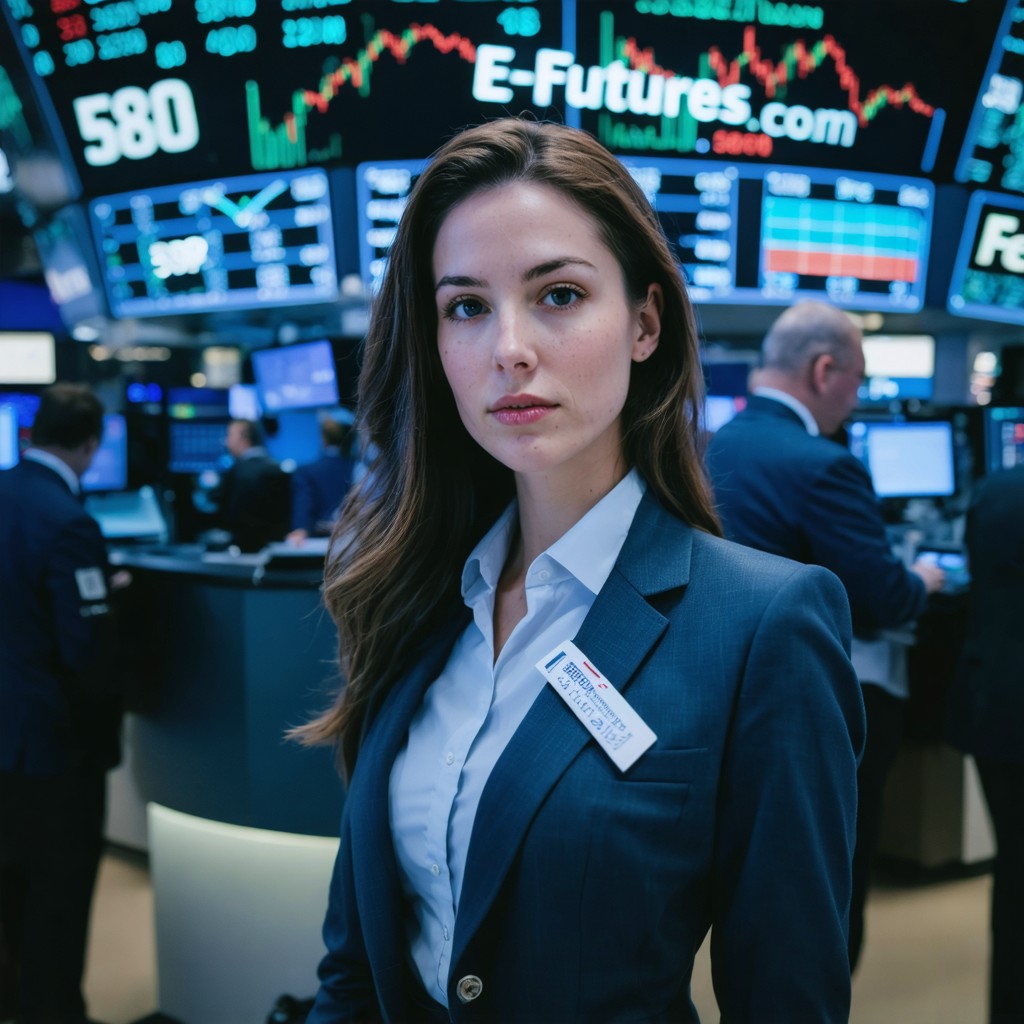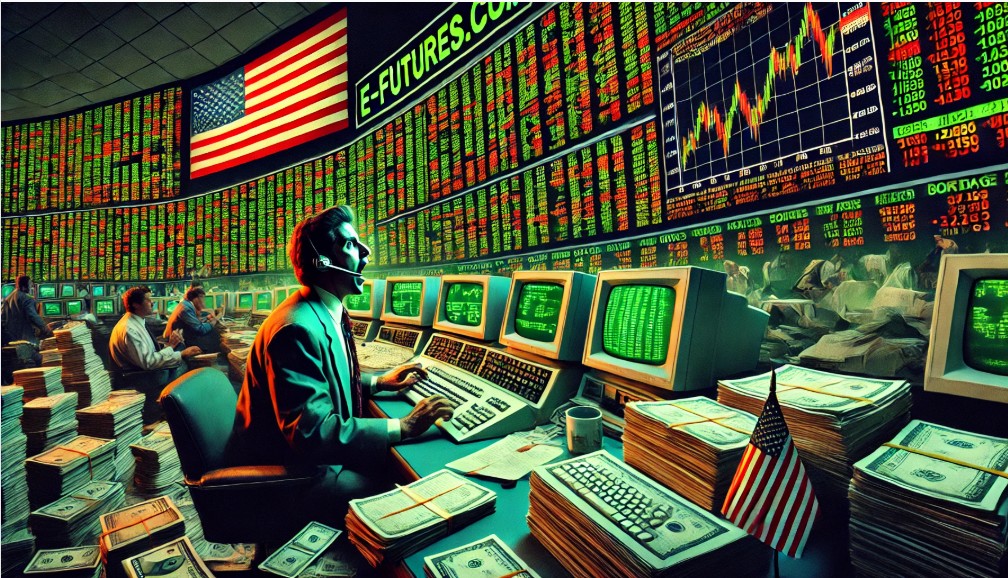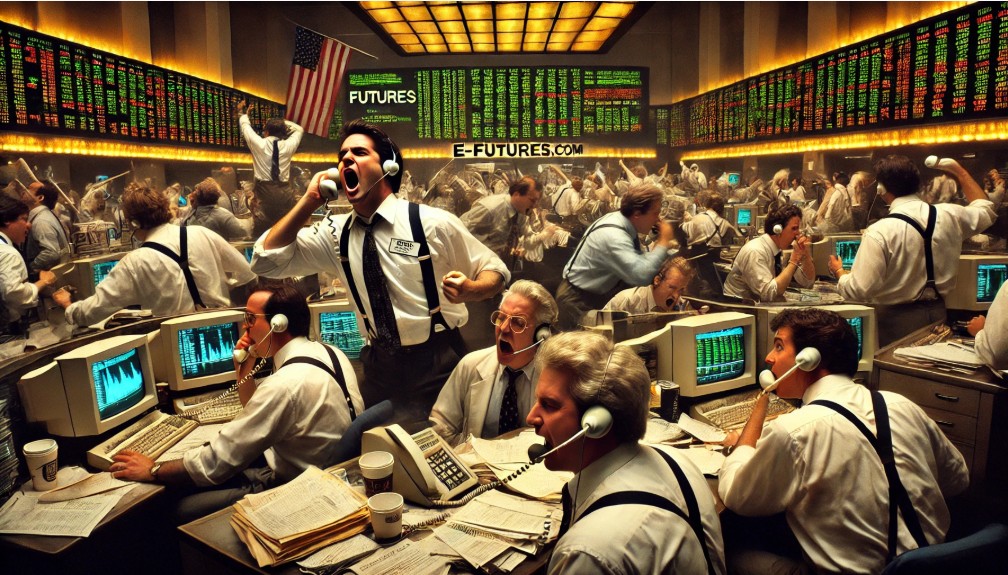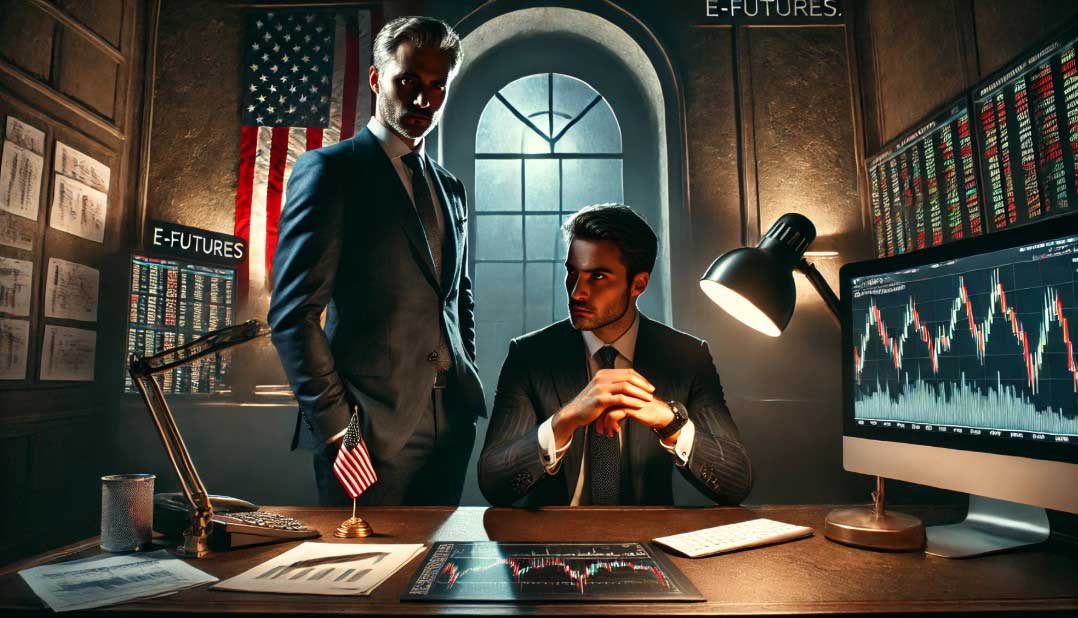Futures on S&P 500 (SP500 index futures) are among the most traded stock index futures globally, offering high liquidity, leverage, and opportunities for traders seeking exposure to the broader market. Advanced traders may believe they have mastered futures in the stock market, but even seasoned professionals can overlook crucial elements, obscure terminologies, and sophisticated strategies that could improve their trading edge.
10 Things Advanced Traders Might Not Know About Futures in the Stock Market
- Volume Delta Analysis in E-mini Futures Trading
Volume Delta Analysis measures the difference between buy and sell market orders, helping futures traders gauge momentum shifts. Traders of SP500 index futures who rely solely on price action without considering Volume Delta may miss key reversals or trend confirmations. Professional traders use this metric to refine entry points in futures trading, especially in high-volatility sessions.
- Shadow Trading in DJIA Futures and E-mini Futures
Shadow trading refers to following institutional movements in futures in the stock market without directly interacting with them. By analyzing large block orders or iceberg orders in E-mini futures, futures traders can anticipate market movements. Understanding how institutions place and conceal orders in stock index futures can provide a major trading advantage.
- Gamma Scalping in Futures Trading
While gamma scalping is commonly associated with options, it can also be applied to futures trading. In volatile environments, traders dynamically hedge by buying or selling S&P 500 index futures contracts based on fluctuations in delta exposure, allowing them to profit from minor price movements while managing directional risk.
- Forgotten Contract Expiration Nuances
Most traders know futures contracts expire quarterly, but some overlook the microstructural effects of expiration weeks. For instance, futures traders often underestimate the importance of the roll yield— the impact of transitioning from one contract to another in futures on S&P 500. This overlooked element affects hedging strategies and arbitrage models in trading futures.
- The Impact of Short Gamma in the Futures Market
Traders in futures in the stock market often fail to consider short gamma effects. When large institutions hold short gamma positions, it can lead to aggressive buying during rallies and selling during downturns, exacerbating market volatility. Understanding how short gamma can create feedback loops is critical in futures trading, particularly for futures traders engaged in scalping or day trading.
- Hidden Pitfalls of Basis Risk in Commodity Brokerage
Basis risk occurs when the price correlation between a futures contract and its underlying asset deviates unexpectedly. While this is more prevalent in commodity brokerage, it can also impact stock index futures. An advanced futures trader who neglects basis risk may face unexpected losses despite correctly predicting overall market direction.
- Liquidity Holes in E-mini Futures Trading
Liquidity is usually abundant in S&P 500 index futures, but hidden liquidity gaps can emerge during major economic releases, geopolitical events, or market crashes. Futures traders need to account for sudden spikes in spreads that can cause slippage and deteriorate trade performance in futures trading.
- The Influence of T+2 Settlement on SP500 Index Futures
Despite futures trading settling daily, the underlying cash market for stocks operates on a T+2 settlement basis. This discrepancy can create arbitrage opportunities or inefficiencies in futures on S&P 500 during high-volatility conditions, such as Federal Reserve announcements.
- The Role of Order Flow Imbalance in Futures SP Trading
Order flow imbalance occurs when there are significantly more market orders on one side than the other. By using tools like footprint charts, advanced traders can detect large imbalances in E-mini futures and gain an edge in stock index futures trading.
- Self-Fulfilling Prophecy of Technical Levels in Trading Futures
Many futures traders overlook how widely followed technical levels, such as Fibonacci retracements or VWAP, can create self-fulfilling prophecies. When large funds place buy and sell orders at these levels, reversals often occur due to collective positioning rather than intrinsic market forces in DJIA futures and SP500 index futures.
Real-Life Past Trades & Case Studies
The 2010 Flash Crash and the Role of Futures in the Stock Market
On May 6, 2010, the DJIA fell nearly 1,000 points within minutes. A major contributing factor was an algorithmic trade in E-mini futures, which created a cascading effect of selling pressure. Futures traders who understood liquidity dynamics were able to capitalize on rapid price dislocations, highlighting the importance of order book depth in futures trading.
The 2020 COVID-19 Market Crash
During the initial market panic in March 2020, S&P 500 index futures hit limit down multiple times. Futures traders who employed options hedging and volatility-based strategies were able to mitigate losses, while those who lacked risk controls suffered severe drawdowns in trading futures.
Risk Potential in Trading Futures
Futures in the stock market present opportunities but also significant risks:
- Leverage Risk: Amplifies both gains and losses.
- Liquidity Risk: Spreads can widen unexpectedly.
- Execution Risk: Slippage can erode profits in fast-moving markets.
- Margin Calls: Failure to meet margin requirements can result in forced liquidation.
- Regulatory Risk: Changes in margin requirements or trading restrictions can impact futures trader strategies.
Why E-Futures.com and CannonX are the Best Choices for Futures Traders
E-Futures.com, powered by the top-performing trading platform CannonX, is a premier destination for traders of all experience levels seeking exposure to futures on S&P 500. Here’s why:
- 5-Star TrustPilot Ratings: Traders consistently rate E-Futures.com highly for reliability and transparency.
- Decades of Experience: A futures broker with an established reputation in commodity brokerage and futures trading.
- Advanced Trading Tools: The CannonX platform offers cutting-edge analytics, algo trading integration, and robust risk management features.
- Regulatory Excellence: Fully compliant with the National Futures Association (NFA) and Commodity Futures Trading Commission (CFTC), ensuring a safe and fair trading environment.
- Superior Execution Speed: Designed to handle high-frequency trading in SP500 index futures and DJIA futures with ultra-low latency.
- Comprehensive Market Access: Trade across multiple asset classes, including futures in the stock market, e-mini futures, and commodity brokerage offerings.
Futures trading is a complex but rewarding endeavor for those who master the nuances of futures on S&P 500. By understanding lesser-known techniques, avoiding common pitfalls, and leveraging the advanced capabilities of platforms like CannonX on E-Futures.com, futures traders can elevate their trading performance. Whether executing high-frequency trades in E-mini futures or managing risk in DJIA futures, the right strategies, tools, and brokerage can make all the difference in future trading success.
To open an account with E-Futures.com, please click here.
Ready to start trading futures? Call US 1(800)454-9572 – Int’l (310)859-9572 email info@cannontrading.com and speak to one of our experienced, Series-3 licensed futures brokers and start your futures trading journey with E-Futures.com today.
Disclaimer – Trading Futures, Options on Futures, and retail off-exchange foreign currency transactions involves substantial risk of loss and is not suitable for all investors. Past performance is not indicative of future results. You should carefully consider whether trading is suitable for you in light of your circumstances, knowledge, and financial resources. You may lose all or more of your initial investment. Opinions, market data, and recommendations are subject to change at any time.
Important: Trading commodity futures and options involves a substantial risk of loss. The recommendations contained in this writing are of opinion only and do not guarantee any profits. This writing is for educational purposes. Past performances are not necessarily indicative of future results.
**This article has been generated with the help of AI Technology. It has been modified from the original draft for accuracy and compliance.
***@cannontrading on all socials








